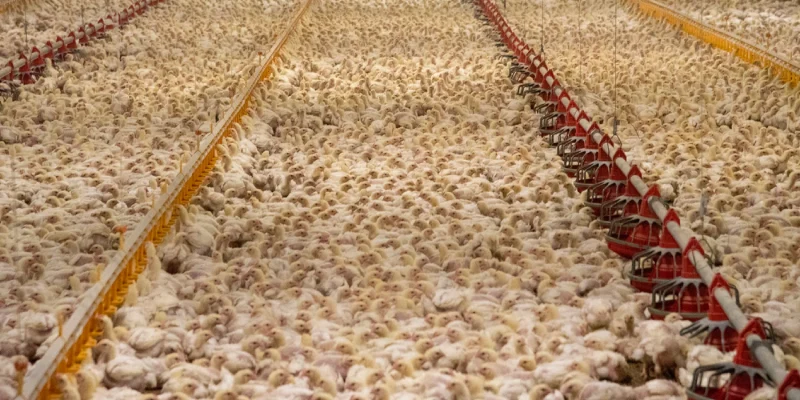Behind closed doors, factory farms hide a world of cruelty. Billions of animals suffer daily in overcrowded, filthy conditions. But the damage doesn’t stop there.
Factory farming is a major threat to the environment, public health, and food safety. It fuels deforestation, pollutes water, and spreads antibiotic-resistant bacteria.
Most people don’t see this reality—they just see neatly packaged meat in stores. But once you know the truth, it’s impossible to ignore.
These eight shocking facts reveal the hidden cost of factory farming. By the end, you might rethink what’s really on your plate. Let’s get started.
1. Factory Farming is a Massive Industry
Factory farming isn’t just big—it’s a global powerhouse. Each year, around 80 billion land animals are slaughtered for food worldwide.
That’s more than 11 animals for every person on Earth.
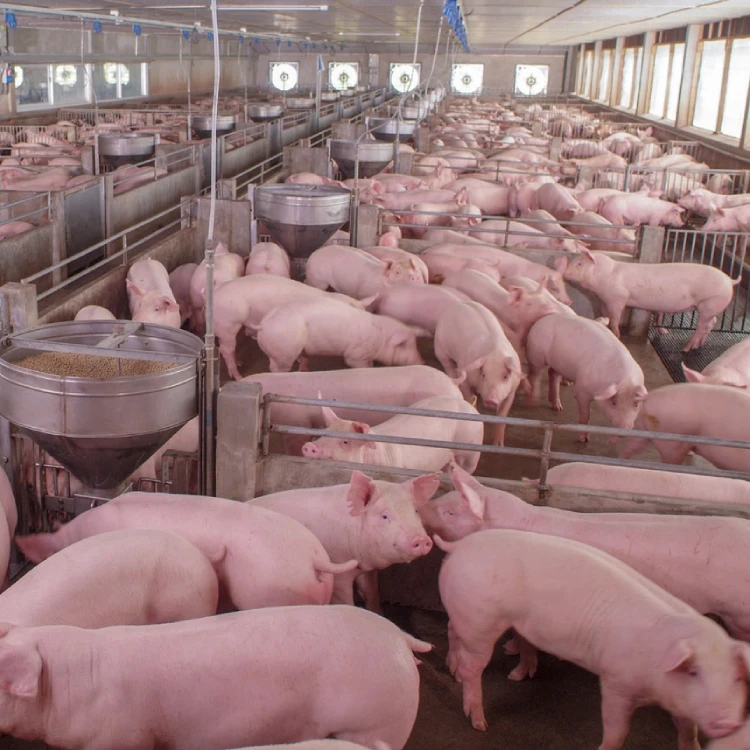
On top of that, the fishing industry kills up to 124 billion farmed fish annually.
Over the last few decades, factory farming has taken over food production. Most of the meat, eggs, and dairy on store shelves come from industrial operations, where animals are treated as production units rather than living beings.
These farms prioritize efficiency and profit, often at the expense of animal welfare, environment, and even human health.
The industry’s growth is fueled by rising global meat consumption. As demand grows, factory farms expand, causing severe environmental damage. They drive deforestation, especially in places like the Amazon, where land is cleared to grow animal feed.
Factory farms also generate enormous amounts of greenhouse gases, playing a major role in climate change.
Water pollution is another serious issue. Factory farms produce vast amounts of waste, much of which ends up contaminating local water sources. Runoff from these farms can lead to dead zones in oceans and rivers, harming marine life and ecosystems.
The scale of factory farming is staggering, but it’s not just about numbers. It’s about the real-life impact—on animals, the planet, and people. The industry’s reach is massive, but so are the consequences.
2. Animals Live in Extreme Confinement
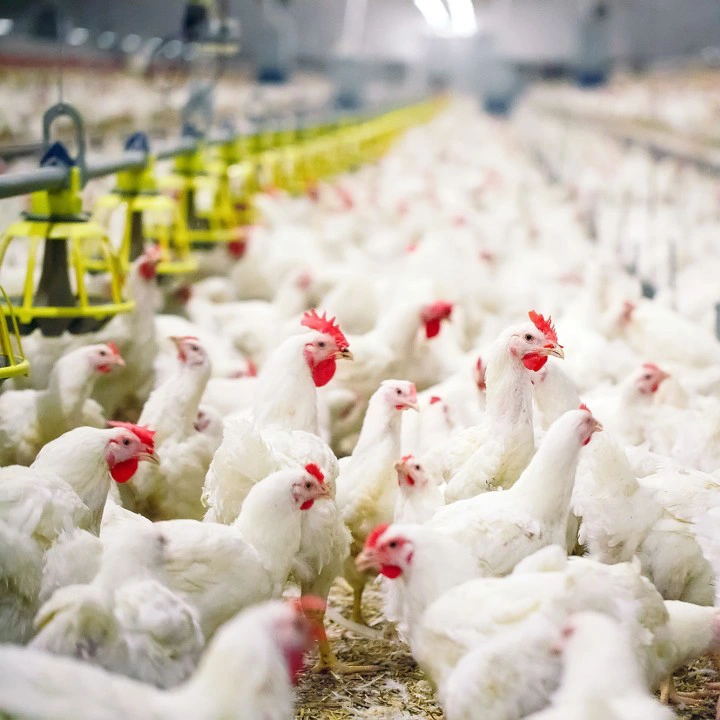
Factory farming keeps animals in cramped, barren conditions, depriving them of space, movement, and basic needs. Most never see sunlight or feel fresh air.
- Egg-laying hens are packed into cages, with up to 10 birds crammed together, each getting less space than a sheet of paper. They can’t spread their wings, dust-bathe, or move freely.
- Broiler chickens, raised for meat, are confined to overcrowded sheds, growing so unnaturally fast that many suffer from leg deformities and heart failure.
- Pigs endure similar cruelty. Pregnant sows are locked in gestation crates, barely bigger than their bodies, unable to turn around. Piglets have their tails cut off and teeth clipped, often without pain relief.
- Dairy cows are repeatedly impregnated to keep milk production high, with their calves taken away shortly after birth. Veal calves are isolated in tiny crates, often kept deliberately weak to produce tender meat.
This extreme confinement causes stress, injuries, and psychological suffering. Animals develop abnormal behaviors, like pecking or biting, out of frustration. Many die from neglect or untreated illnesses.
Factory farming prioritizes profit over welfare, treating animals as mere commodities. The reality is grim—these sentient beings spend their short lives in conditions no living creature should endure.
3. Animals Are Killed Far Too Young
Factory-farmed animals rarely live past infancy. They are slaughtered at a tiny fraction of their natural lifespan, all in the name of profit.
Chickens raised for meat (broilers) are killed at just 6-7 weeks old. They are still babies, peeping like newly hatched chicks. Selective breeding and growth hormones force them to grow so fast that their legs and organs often fail under their unnatural weight.

In the wild, chickens can live 5-10 years.
Pigs, who naturally live 15-20 years, are slaughtered at just 6-7 months old. By that time, they’ve endured extreme confinement, painful procedures, and immense stress.
Dairy cows could live over 20 years, but in factory farms, they are slaughtered at 4.5 to 6 years old when their milk production declines.
Their male calves, considered worthless to the dairy industry, are either killed within days or sent to be raised for veal, confined to tiny crates until slaughter.
Even egg-laying hens, who naturally live 8 years or more, are sent to slaughter at 18 months once their egg production slows.
These animals are denied their entire lives, and their suffering is dismissed for cheap meat, milk, and eggs. Instead of being treated as sentient beings, they are pushed to their limits and then discarded when they’re no longer profitable.
4. Standard Practices Are Shockingly Cruel
Factory farming relies on routine cruelty that would be illegal if done to pets. Painful procedures, extreme confinement, and inhumane killing methods are all considered standard practice.
Chickens, both for meat and eggs, suffer immensely. Debeaking, where part of their beaks is cut off with a hot blade, is common to prevent pecking in overcrowded sheds.
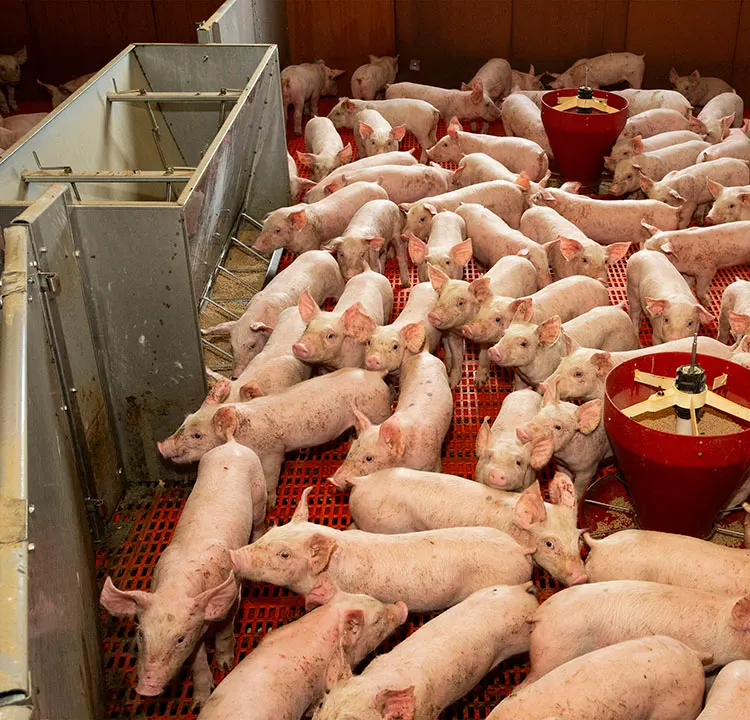
Male chicks in the egg industry, useless because they can’t lay eggs, are ground up alive or suffocated immediately after hatching.
Pigs endure brutal procedures without pain relief. Newborn piglets have their tails docked, teeth clipped, and males are castrated—all with no anesthesia.
Mother pigs are confined in gestation crates so small they can’t even turn around.
Cows face their own horrors. Dairy cows are forcibly impregnated to keep producing milk, with their calves taken away hours after birth. Male calves are either slaughtered for veal or killed as waste.
Dehorning and branding are common, often done without pain relief.
Farmed fish suffer too. Many are killed by suffocation, gill-cutting, or being processed alive. Some endure carbon dioxide gassing, causing slow and painful suffocation.
Even so-called humane farms use many of these practices. Animals still experience confinement, painful mutilations, and premature slaughter.
If these acts were done to a dog or cat, there would be public outrage. But because these animals are labeled as “food,” their suffering is ignored.
Factory farming normalizes cruelty on a massive scale, turning sentient beings into mere commodities.
5. Factory Farming Destroys the Environment
Factory farming is one of the biggest environmental disasters on the planet. It drives deforestation, water pollution, and climate change at an alarming rate.
The industry produces 14.5% of global greenhouse gas emissions. That’s more than all transportation combined. Methane from livestock, especially cows, is a major contributor to global warming.
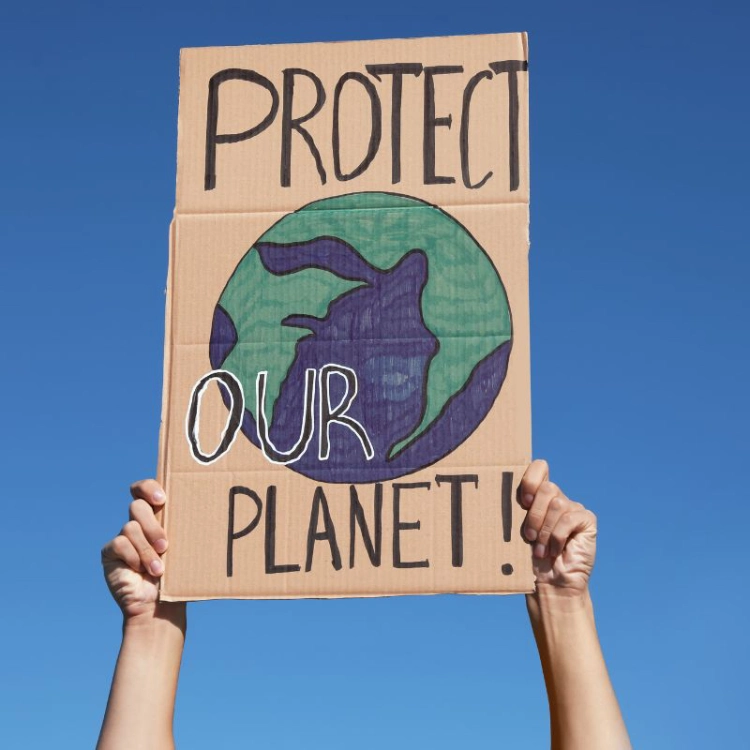
To grow animal feed, vast forests—including the Amazon rainforest—are destroyed. This deforestation wipes out wildlife, reduces biodiversity, and accelerates climate change.
Factory farms also produce massive amounts of waste, often more than entire cities. Manure and chemicals from these farms pollute rivers, lakes, and groundwater, harming both humans and wildlife.
Industrial animal agriculture is unsustainable. It consumes excessive resources, pollutes the planet, and fuels climate destruction. The fastest way to reduce your environmental footprint? Cut out animal products.
6. Factory Farms Breed Antibiotic-Resistant Superbugs
Factory farms are a breeding ground for antibiotic-resistant superbugs. In these overcrowded, filthy conditions, animals are routinely given antibiotics—not just to treat sickness but to prevent disease and promote faster growth.
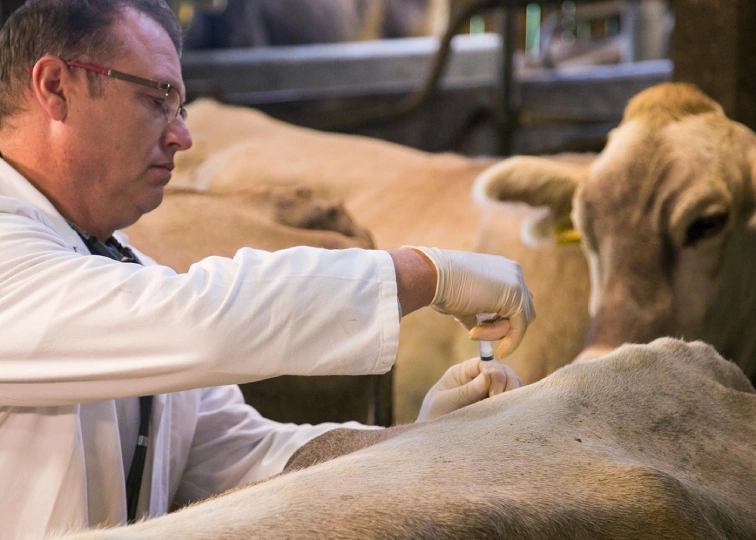
Around 70% of the world’s antibiotics are used in animal agriculture. This overuse leads to antibiotic-resistant bacteria, or “superbugs,” which can spread to humans through meat, water, soil, and air.
Superbugs like MRSA, E. coli, and Salmonella have already become more resistant, making infections harder to treat. The World Health Organization warns that antibiotic resistance is a global crisis, putting millions of lives at risk.
If factory farming continues its reckless antibiotic use, we may face a future where common infections become deadly again. Cutting out animal products reduces demand for factory-farmed meat and helps fight this growing health threat.
7. Factory Farming Increases Human Health Risks
Factory farming doesn’t just harm animals—it also puts human health at serious risk. From foodborne illnesses to chronic diseases, the impact is alarming.
Food Poisoning and Contamination
Factory farms are breeding grounds for dangerous bacteria like Salmonella, E. coli, and Campylobacter.

These bacteria spread through contaminated meat, dairy, and eggs, causing food poisoning that leads to hospitalization or even death.
Poor sanitation, overcrowding, and stress weaken animals’ immune systems, increasing the risk of disease outbreaks.
Zoonotic Diseases (Animal-to-Human Transmission)
Factory farms create the perfect environment for deadly viruses to spread from animals to humans. Swine flu (H1N1) and bird flu (H5N1) both originated from factory farms.
Overcrowding and poor ventilation make it easy for new, potentially pandemic-causing viruses to develop and jump to humans.
Hormones and Chemical Exposure
In some countries, growth hormones like rBST are used to increase milk production in dairy cows. Although banned in many places, these hormones have been linked to early puberty and increased cancer risks.
Additionally, pesticides, antibiotics, and additives used in animal feed can accumulate in meat and dairy, exposing consumers to harmful chemicals.
Chronic Disease Risks
Eating a lot of red and processed meats is linked to heart disease, cancer, and diabetes. The World Health Organization warns that processed meats can cause cancer, raising the risk of colorectal cancer.
High cholesterol from excessive meat and dairy consumption is a leading cause of heart disease, the number one killer in the U.S.
A Safer, Healthier Choice
Switching to a plant-based diet lowers the risk of foodborne illnesses, chronic diseases, and exposure to harmful chemicals.
Choosing whole, plant-based foods promotes better health, longevity, and a stronger immune system—without the risks tied to factory farming.
8. “Humane” Labels Can Be Misleading
Many people believe that labels like “free-range,” “cage-free,” and “organic” mean animals are treated well.
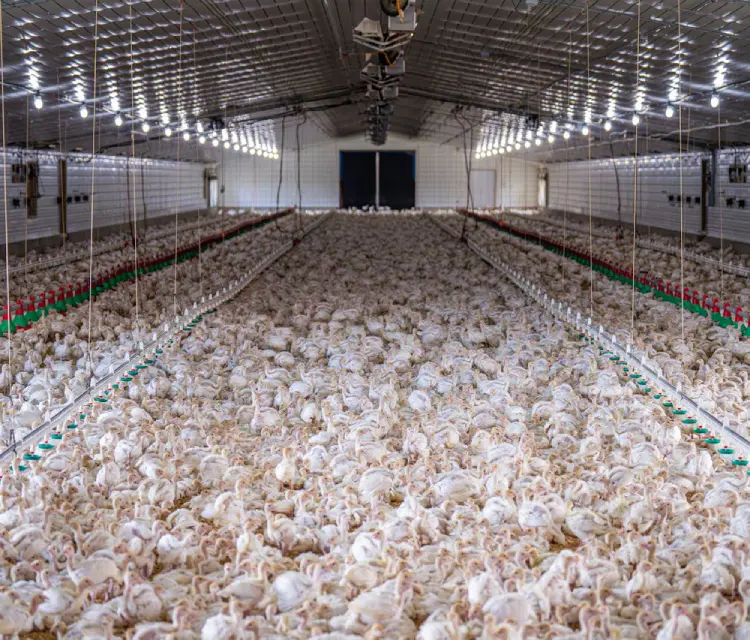
But in reality, these labels are often misleading and don’t guarantee humane treatment.
Free-Range & Cage-Free
Free-range chickens are supposed to have outdoor access, but that doesn’t mean they ever go outside. Many are kept in overcrowded barns with small doors leading to limited outdoor areas.
Cage-free eggs come from hens not kept in cages, but they’re often crammed into massive sheds with tens of thousands of birds.
Organic Meat & Dairy
Organic certification restricts the use of antibiotics and hormones, but animals can still be raised in factory farm conditions.
Organic cows may spend most of their lives in confinement, and organic chickens can still be raised in overcrowded barns.
Grass-Fed & Pasture-Raised
While grass-fed cows have a better diet, many still face early slaughter and stressful conditions.
“Pasture-raised” animals may have more space, but they still face the same fate. Their lives end in the same slaughterhouses as factory-farmed animals.
Conclusion
Every meal you eat makes a difference. Factory farming harms animals, the planet, and human health. Labels can be deceptive, and even “humane” farming still causes suffering.
Choosing plant-based foods helps reduce animal cruelty, lower environmental damage, and protect your health. Every step toward a vegan lifestyle makes a difference.
Now that you know the truth, you have the power to create change. Your choices matter—make them count.

